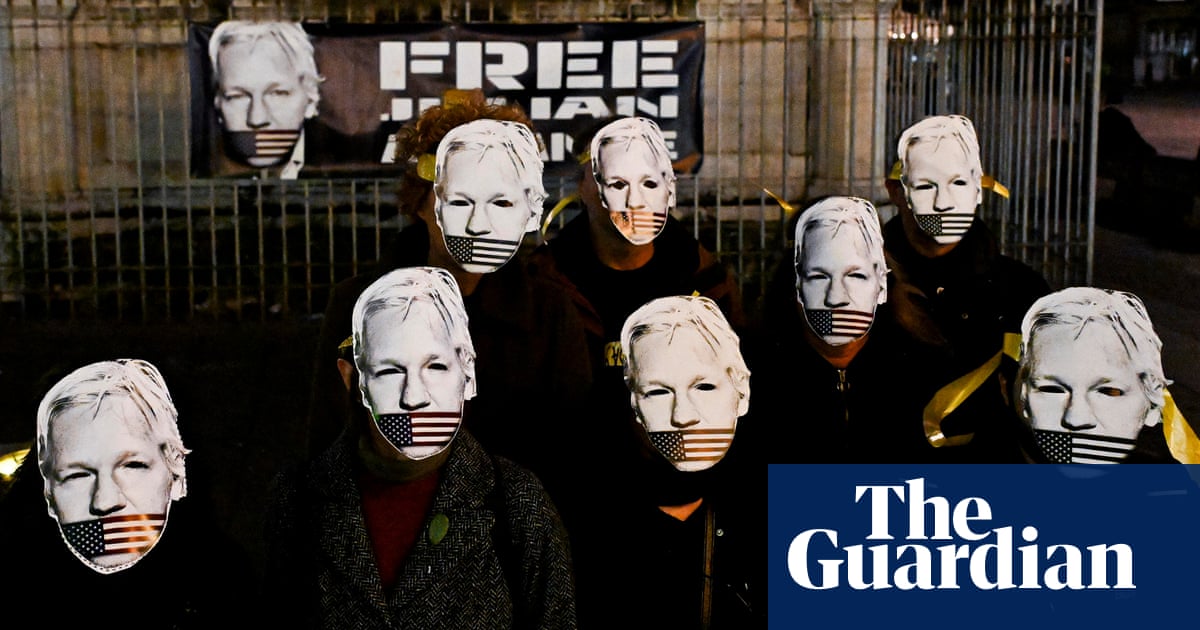Joe Biden said on Wednesday that he was considering a request from Australia to drop the decade-long US push to prosecute the WikiLeaks founder Julian Assange for publishing a trove of American classified documents.
For years, Australia has called on the US to drop its prosecution against Assange, an Australian citizen who has fought American extradition efforts from prison in the UK. Asked about the request on Wednesday, as he hosted the Japanese prime minister, Fumio Kishida, for an official visit, Biden said: “We’re considering it.”
Biden’s comment is the latest indication that his administration may have cooled on the idea of putting Assange on trial, which could prove politically toxic in an election year. Last month, the Wall Street Journal reported that the Biden administration was exploring the possibility of allowing the WikiLeaks founder to cut a plea deal that would see him admit to a misdemeanor offense of mishandling classified documents in return for an early release.
The Australian prime minister, Anthony Albanese, said on Thursday that Biden’s comments were “certainly encouraging”.
“I’m increasingly optimistic about an outcome, but one certainly has not been delivered yet,” Albanese told Sky News Australia. “We’ll continue to argue the case at every opportunity that we have.”
The latest flurry falls on the eve of the fifth anniversary of Assange’s incarceration in Belmarsh prison in London. Pressure has been mounting on the US government in recent weeks from Australia and around the world.
Assange has been indicted on 17 espionage charges and one charge of computer misuse, exposing him to a maximum 175 years in prison, over his website’s publication of a trove of classified US documents almost 15 years ago. American prosecutors allege that Assange, 52, encouraged and helped the US army intelligence analyst Chelsea Manning steal diplomatic cables and military files that WikiLeaks published, putting lives at risk.
Australia argues there is a disconnect between the US treatment of Assange and Manning. President Barack Obama commuted Manning’s 35-year sentence to seven years, which allowed her release in 2017.
In February, the Australian parliament passed a motion that called on the US and UK governments to allow Assange to return to his native country. Albanese and his cabinet members voted in favour of the motion.
Assange’s supporters say he is a journalist protected by the first amendment who exposed US military wrongdoing in Iraq and Afghanistan that was in the public interest. Assange’s wife, Stella Assange, has said the WikiLeaks founder “is being persecuted because he exposed the true cost of war in human lives”. She has said his health continues to deteriorate in prison and she fears he will die behind bars.
Critics from around the world, including major media outlets such as the Guardian, New York Times and Le Monde which all participated in the original 2010 publication of Manning’s revelations, have warned that a high-profile trial of Assange could put a chill on public interest journalism. Caitlin Vogus of the non-profit Freedom of the Press Foundation this week wrote that “under the government’s theory in the Assange case, even just publishing government secrets – something journalists do all the time – would violate the espionage act”.
after newsletter promotion
A British court ruled last month that Assange cannot be extradited to the United States on espionage charges unless US authorities guarantee he will not get the death penalty. Assange had come within hours of being extradited to the US to face the espionage charges, but was granted a temporary reprieve when judges ruled that he could have a final appeal hearing should the US government fail to satisfy the demand.
Should Biden decide to drop the Assange prosecution it would bring him into line with the previous Democratic administration of Barack Obama. It held back from charging the WikiLeaks founder for fear of infringing freedom of the press rights under the first amendment.
The 18 charges against him were ultimately brought under the presidency of Donald Trump. His administration initially accused Assange of one count of breaking a federal computer hacking law, but then vastly increased the severity of the prosecution by adding 17 counts under the Espionage Act.







